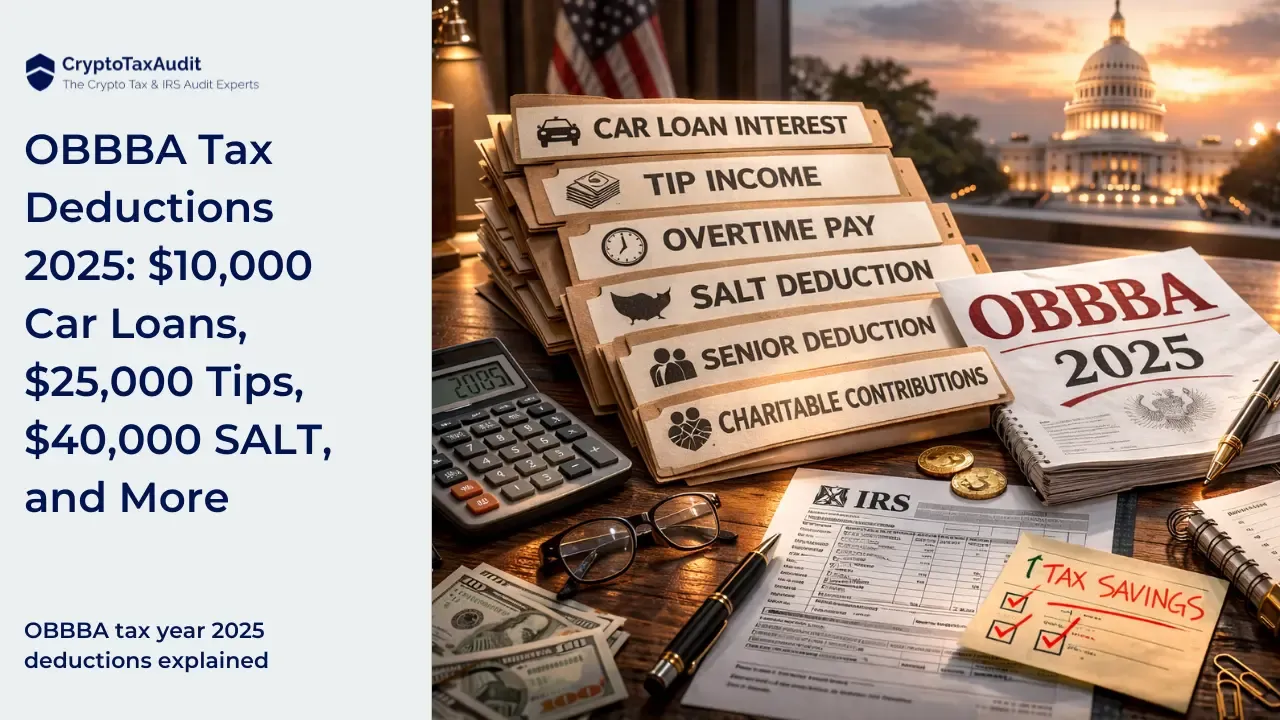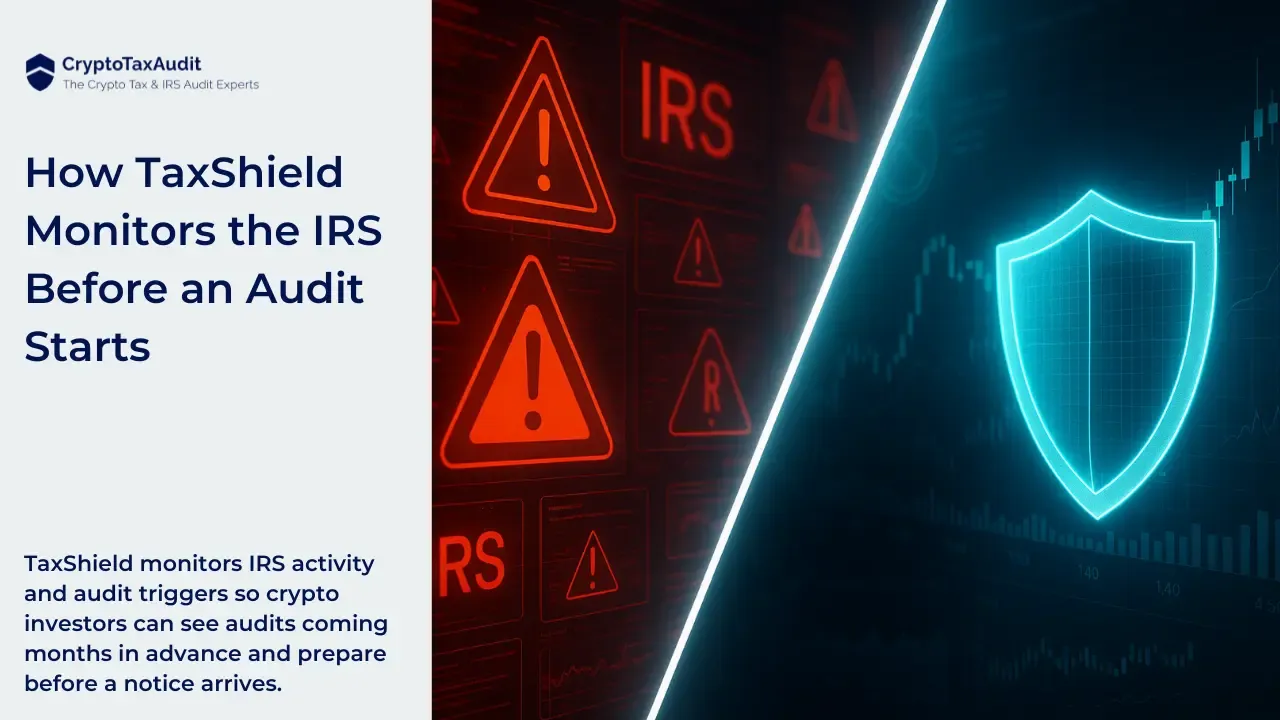
Learn about your tax liability and how to avoid paying taxes legally on your Spark token airdrop.
Did you hold XRP on December 12, 2020?
Crypto investors who held the XRP coin, sometimes known as Ripple, received an equivalent amount of Spark token via an airdrop when held on certain exchanges back on December 12th, 2020. This is known as an “airdrop”.
Spark token is the native token of the Flare Network, and there is a maximum supply of 100 billion Spark (FLR) tokens. Flare Network announced that it would drop 45 billion of these tokens to XRP holders.
How your Spark token works.
The Spark distribution is a simple 1-to-1, with 1 Spark token awarded to an investor for every XRP coin they own. The snapshot for the airdrop took place on December 12, 2020. Anyone who was holding XRP at that time was eligible to receive the airdrop.
The first distribution happened when the Flare mainnet went live in 2021. Initially, just 15% of the tokens were be distributed. The remaining 85% of tokens would be distributed over the next couple of years. Presumably, this is done to reduce selling pressure.
The process for claiming Spark tokens differs depending on which wallet an investor holds their XRP. Most major wallets have posted guides about how their users can claim their Flare tokens.
Airdrops are free coins that are sent to your wallet.
According to the IRS, Revenue Rule 2019-24, "when a taxpayer receives property that is not purchased unless otherwise provided in the code, the taxpayer's basis in the property received is determined by reference to the amount included in gross income, which is the fair market value of the property when the property is received.”
The IRS states that new coins received through an airdrop are taxed as ordinary income. Therefore, you owe income taxes on new coins you have in your wallet due to an airdrop. The amount of income is the fair market value in USD of the airdropped coins when they are received in the wallet.
What is the fair market value on day one?
The answer lies in determining the fair market value of the Spark token airdrop. The same revenue ruling leads us to this section of the code, 26 CFR 1.897-1(o)(2)(ii).
The fair market value (FMV) is the price at which the property would change hands between an unrelated willing buyer and a willing seller, neither being under any compulsion to buy or to sell and both having reasonable knowledge of all relevant facts.
On day one, there are no buyers or sellers. At the exact minute that every XRP holder gets his/her 15% spark drop, there are no actual buyers or sellers. Nobody knows the facts on day one, and therefore nobody knows what to do.
A strong argument can be made that the day one price is zero USD since there is no fair market value. However, as additional Spark tokens are airdropped in the subsequent months, there will be buyers and sellers. This fair market price will be best seen on the price valuations on CoinMarketCap, CoinGecko, or other similar sites.
On those subsequent airdrops, you would multiply the market pricetimes the number of new Spark tokens you receive to calculate the amount of income that you have received under the revenue ruling for their airdrops. This amount of income is considered ordinary income and is taxed at your tax bracket.
This amount also becomes the cost basis for those coins you received on that day and when you trade them in the future. With this interpretation, it's good news for the Spark token holder because that initial drop of 15% is significant because the tax on zero dollars is zero.
For the subsequent ones, however, you will be taxed at ordinary income rates.
Wouldn't an IOU set the FMV on day one?
An IOU is not a Spark token. An IOU is a debt obligation. Since they are different assets, a strong argument can be made that the speculative debt instrument doesn't establish a fair market value.
Can I defer the date that I receive my Spark tokens?
When is the official date I receive the tokens since this determines the fair market value? Some have suggested not receiving Spark airdrops until a later date to delay tax events.
Good question? Can I be taxed on income if I haven't received the tokens yet? The IRS regulations section 1.451-2 explains the concept of constructive receipt of income.
The regulation says “income although not actually reduced to a taxpayer's possession is constructively received by him…[when] credited to his account, set apart for him, or otherwise made available so that he may draw upon it at any time…[without] substantial limitations or restrictions."
IRS Revenue Ruling 2019-24 reaffirms this principle by stating, "Cryptocurrency from an airdrop generally is received on the date, and at the time it is recorded on the distributed ledger. However, a taxpayer may constructively receive cryptocurrency prior to the airdrop being recorded on the distributed ledger. A taxpayer does not have receipt of cryptocurrency when the airdrop is recorded on the distributed ledger if the taxpayer is not able to exercise dominion and control over the cryptocurrency."
These principles mean that the fair market value of Spark tokens is determined by the dates Flare Network’s smart contract releases the tokens.
Is December 12, 2020, the date I receive the tokens?
Could Spark tokens be considered constructively received on this date? No. because no one received possession of Spark tokens on this date. They only received a promise.
No tokens were written to the distributed ledger on that date. This fact would be a "substantial limitation or restriction" preventing treatment as constructive receipt of income per regulation 1.451-2.
On December 12, 2020, the taxpayer could not exercise dominion or control (do what they want) with the Spark tokens because they hadn't been issued. Per Revenue Ruling 2019-24, the taxpayer is not considered to have receipt of the property.
Why isn’t day one the receipt date for all Spark tokens?
When the day one airdrop happens, the taxpayer finally has dominion and control over the initial 15% distribution. He is finally able to do what he wants with the tokens. The first action is to claim the initial tokens.
However, the taxpayer does not have dominion and control over the future 85% Spark tokens. This is a fundamental restriction on being able to do anything with future tokens. For these reasons, the taxpayer doesn't have constructive receipt of the future tokens until they are dropped.
Does the payment theory hold water?
Officials at Flare Network have observed that some Spark must be burned (low cost) to receive possession of subsequent Spark drops. Their thinking is that this burning could be treated as the fair market price.
This small price is just a transaction fee for taking possession. The Spark token was constructively received before the transaction which takes precedence. The transaction fee does not change the Spark income amount. The transaction fee is a cost and can be added to the cost basis of the Spark.
Double taxation, or not.
A common reaction people have is feeling like they're getting taxed on the income twice, once after they receive the coin and a second time after selling the coin. This is a misunderstanding.
If I receive a coin, and let's say that a token is worth two dollars, and I'm taxed on that two dollars as ordinary income on the day I receive it. Then later, I sell that token when the price has gone up to three dollars. And then I pay a capital gains tax only on the gain from two to three or a total of one dollar in gain.
You're not being taxed twice.
Another perspective is what if I received a token for two dollars and paid ordinary income tax on that two dollars and then later sell it, and the price dropped to fifty cents? What happens? Will I have a capital gain?
I have a capital loss of one dollar and fifty cents. That loss offsets other gains I may have had. And the net result is you're getting your taxes reduced by the loss. So whether the price goes up or down, you're never being taxed twice.
How is my Spark token taxed in subsequent airdrops?
After the first airdrop of the 15% in June, XRP Investors will have six more drops of about 2.5%, which would be roughly another 15%. By the end of the year first year, they're looking at having roughly 30% of their Spark tokens. That's an excellent way to look at it because of the 30% of these Spark tokens, half of them will not be subject to additional tax.
The biggest concern XRP holders have is, am I going to get taxed on these subsequent airdrops? And so what I explain is on that first 15%, no. However, on the subsequent ones, yes, you will be taxed about 2%-3% each month until they are all distributed. Rest assured, though, you will never be taxed twice. Also, you will not have to pay taxes until next year.
A progressive tax system.
When we talk about ordinary income, it’s important to note that the U.S. has a progressive tax system. When people make more income, they don’t just pay more tax. They get taxed at higher percentages.
We call that percentage your marginal tax bracket. So my initial income is taxed at zero percent. And then it's 10%, and then it's 15%. Let's say I am a person making $86,000 a year. Well, you're probably going to get taxed at 24% percent. So that means every extra dollar, like a Spark token of income, is going to be subject to 24% tax until you hit the next tax bracket.
That's one aspect of progressive tax that people don't always understand. These are airdrops. There's no Social Security FICA or self-employment tax. There's none of that.
Another subtlety is that if you're making a lot of money on Spark tokens because we don't know what the price is yet, you may need to consider making estimated tax payments if you're going to be over a thousand dollars in taxes. If you don't make the estimated tax payments, you're only subject to an interest penalty, which currently is about 3% a year.
An alternative tax strategy is to treat airdrops as a gift.
This is an alternative tax strategy that eliminates any tax on Spark tokens until they are finally sold (capital gains). There are essential tax filing obligations that are required when claiming zero tax. Failure to do these obligations can have significant financial penalties. Please read on to learn more.
Does IRS Revenue Ruling 2019-24 apply to the Spark airdrop?
The ruling says, "A taxpayer has gross income, ordinary in character, under § 61 as a result of an airdrop of a new cryptocurrency following a hard fork if the taxpayer receives units of new cryptocurrency."
Is the Spark token an "airdrop of a new cryptocurrency following a hard fork?"
Rev. Ruling 2019-24 says a hard fork "occurs when a cryptocurrency on a distributed ledger undergoes a protocol change resulting in a permanent diversion from the legacy or existing distributed ledger." The Flare Network did not create a permanent diversion from an existing distributed ledger.
Therefore, the ruling wouldn't apply to Spark tokens. Spark tokens don't have to be treated as income. They would be considered gifts from a foreign company.
URGENT WARNING: Dire tax consequences could result if you don't read until the end of this article.
As a general rule, gross income does not include the value of property acquired by gift per tax code section 102. I'm sure most Spark owners would prefer this. XRP owners did no work to earn the Spark tokens. If Spark token drops are considered gifts, there is no immediate income to be taxed.
Gifts of property are not taxed until they are disposed of. The cost basis is the adjusted cost basis of the giver per tax code section 1015(a). The cost basis of the tokens is Ripple's cost to produce them (which probably rounds to $0). This would make the cost basis of the tokens effectively $0.
This is great news except for one crucial fact. Flare Networks, the creator of the Spark token, is incorporated in the United Kingdom.
Why is it essential that Flare Networks is a foreign company?
Congress has imposed certain anti-money laundering (AML) regulations to stop the illegal movement of funds. Usually, there is no tax associated with these regulations, but failure to file these required forms on time is subject to harsh penalties.
Congress uses harsh penalties to motivate good people to be honest and scare bad actors into hiding by not reporting.
Tax code section 6039F requires taxpayers to report gifts over $16,649 during a year from foreign companies. A foreign gift is defined as "any amount received from a person other than a United States person which the recipient treats as a gift or bequest."
Note that it is the recipient that determines whether the amount received was a gift or not. It is not up to Flare Networks to make this determination. If you feel it is a gift, then it is.
A taxpayer must report the gift on IRS Form 3520. This form is due on April 15th. It is not filed with your 1040 return. It is separately mailed to the IRS in Ogden, Utah. If you need an extension on the filing date, you must file form 7004. Extending the personal or business return does not automatically extend the Form 3520 deadline.
IRS Form 3520 is not required if your total gift value was less than $16,649.
Failure to file this form on time has significant financial consequences. Read closely.
Failure to file by the deadline is a $10,000 penalty. Every month, late filing of the form results in an additional penalty equal to 5% of the gift amount until a maximum of 25% of the gift is charged. You won't forget that!
The subsequent distributions should be reported on Form 3520 or 3520A. These forms are both due April 15th of the following year unless extended using From 7004.
The subsequent distributions, as I understand it, are distributed from the UK-based Flare Foundation whose custodian (or trustee) is a UK company called Copper. Copper acts on recommendations from the Spark governance actions.
For U.S. tax purposes, the nature of this foundation would be classified either as a foreign trust or as a foreign company based on U.S. laws, not English. Without personally seeing the trust documents, I can’t determine which classification would best apply.
If the foundation would classify as a foreign trust, Form 3520-A page 5, 2020 Foreign Grantor Trust Beneficiary Statement must be filed regardless of the total value of the gift.
If the foundation would classify as a foreign company, then Form 3520 would be filed if the total gift for the year exceeded $16,649.
Choose your strategy.
At CryptoTaxAudit.com, we recommend that taxpayers picking this solution also file an IRS Form 8275 with your Form 1040 tax return. This simple form is used to disclose anything not evident in the tax return. Disclosing prevents the 40% accuracy penalty from being assessed by an auditor, per tax code 6662(d).
For the Form 8275 disclosure explanation state, "Revenue Ruling 2019-24 doesn't apply to the Spark airdrops because they didn't result from a hard fork."
Many Spark recipients should file Form 8938.
If the value of the Spark tokens received during a year exceeds $50,000 (single) or $100,000 (married filing jointly), then IRS Form 8938 should be filed. This is one of Congress's AML forms. On this form is reported, "Specified Foreign Financial Assets." This form is not required if you received amounts below those limits.
Per tax code 6038D, a taxpayer must report "any financial instrument or contract held for investment that has an issuer or counterparty which is other than a United States person”. This would be the Flare Networks company. The Spark token would be classified as a financial instrument.
Failure to file Form 8938 on time with your tax return is subject to an automatic penalty of $10,000.
A taxpayer considering taking this option should consult with a knowledgeable CPA, Enrolled Agent, or tax lawyer before filing to understand the risks.
How would the IRS know that I received Spark tokens?
The U.S. tax system is voluntary in that each taxpayer must declare all income and deductions for the year. To keep taxpayers honest, the law requires institutions to report amounts paid to individuals during the year. These are called 1099 forms. There are several types.
The IRS has not been clear about the 1099 reporting requirements of crypto exchanges. Some U.S. exchanges like Kraken and Poloniex have refused to issue 1099 forms in past years. It’s no surprise that the IRS has filed so-called “John Doe" summons against these exchanges to disclose trader information from 2016 through 2020. These exchanges said they would comply with the summons.
This shows how the IRS can get trading information years later on exchanges, particularly those not voluntarily submitting 1099 forms. It seems likely that the IRS will expand its efforts to other US exchanges.
Given investigations into Binance, it suggests that the IRS may continue to use the courts to force information from foreign exchanges. Spark recipients on U.S. exchanges like Uphold should expect that Uphold will issue a 1099-MISC to report income from the Spark airdrop.
Spark recipients should assume that the IRS may learn airdrop information from foreign exchanges in the future as well.
The IRS compares income on 1099, W-2, and K-1 forms to the income reported on a tax return. This is a straightforward check for the IRS supercomputers to do. They then generate automated underreporting letters (called CP2000 audits). If the amount underreported is substantial, a human auditor may be assigned to investigate.
How can I know if the IRS has selected me for an audit?
CryptoTaxAudit offers a monthly membership service where we monitor your IRS account every week. We can detect when the IRS supercomputers flag your return for audit, whether crypto-related or not. And we let you know about it right away.
Typically, there are six months between when a return gets flagged and when an auditor starts the audit. This gives you enough time to fix and refile the return before the audit begins, thereby avoiding the 20%-40% accuracy penalty plus interest.
The best defense is a good offense. Since the taxation of cryptocurrencies lacks total clarity, the best strategy is to prepare a tax return that is true, correct, and complete.
Learn more about IRS Guard Dog membership, only from CryptoTaxAudit. Be informed, be prepared, be defended.
DISCLAIMER: Opinions and perspectives of the author, host, and guests. It should not be construed as U.S. taxpayer advice. There are often multiple interpretations of tax law. Various strategies may be suited to specific individuals and for particular situations. Seek out professional tax, legal, or financial advice from CryptoTaxAudit or from other reputable companies.





